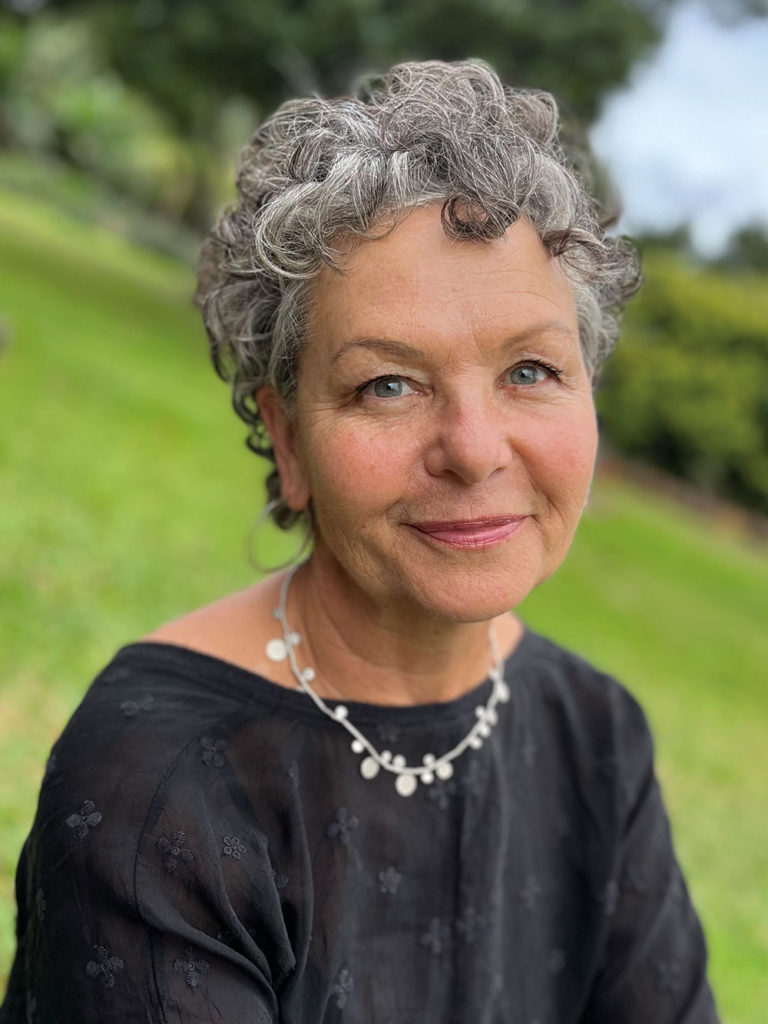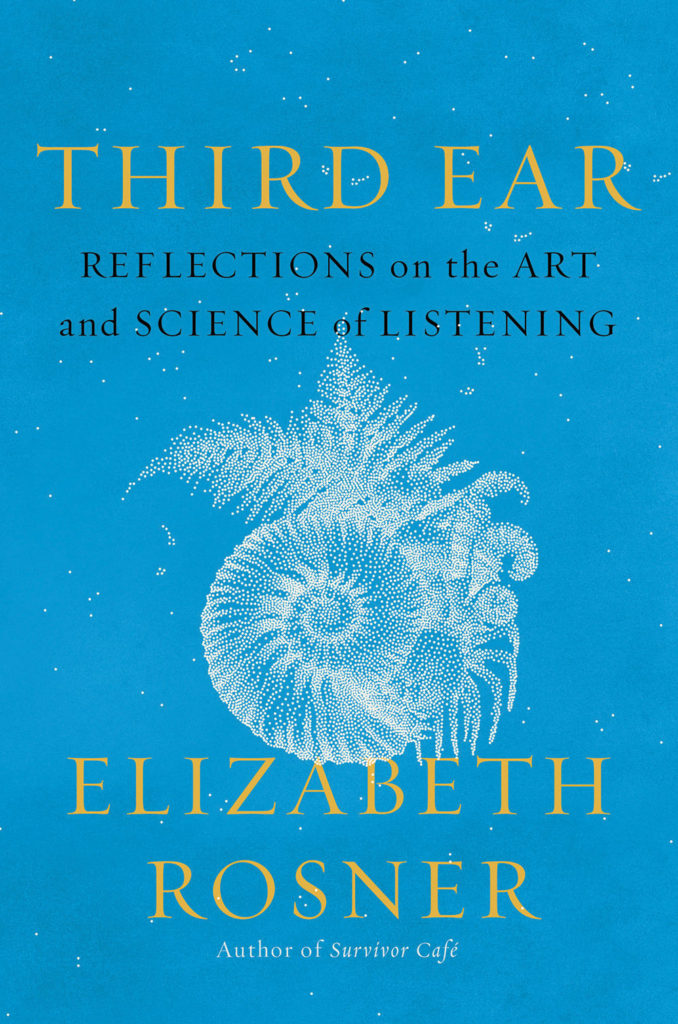Elizabeth Rosner’s new book, Third Ear: Reflections on the Art and Science of Listening, is by no means a prescriptive self-help book, though it could be. Focused on listening and hearing, the Berkeley-based writer reflects on auditory landmarks and how they affect health and wellbeing.
As a guidebook, Third Ear charts a wide-ranging journey through the science of hearing, the harmful effects of noise, the benefits of music, listening to animals like whales, dolphins and birds, the complexity of languages, and the deeper elements of hearing, such as communication through silence and unspoken words.
Throughout the stories, Rosner’s easy warmth and curiosity rise like bubbles in water, making a book in which robust science-backed research and expert voices are found on almost every page also a delightful, intimate read.
Rosner grew up with multilingual parents who were Holocaust survivors, which informs Third Ear and her previous nonfiction book, Survivor Café: The Legacy of Trauma and the Labyrinth of Memory.
A “life of eavesdropping on the world, listening with all of my senses,” she writes in Third Ear, has her “reaching toward sources of interconnection” and ultimately, searching for pathways leading to reconciliation, recovery, health and wellbeing.
“The science and art of listening is amazing. My mind keeps widening to accommodate it, and that’s a good thing. For me, that’s the goal of writing a book. I encountered a set of questions and answers. From that, I get more questions. To keep discovering more is an ideal way of being,” Rosner says.


Among the ideas that excited and fueled her innate curiosity were comments made by the experts she interviewed. She quotes in the book the Canadian composer and author R. Murray Schafer, who contrasted eyes and seeing with ears and hearing. Unlike eyes that can be closed to block light or avoid seeing something unpleasant, Schafer said, “We have no ear lids.”
Without a way to “shut off” sound—no one wears noise-canceling headphones 24/7, nor would it be desirable—the accumulative health effects are considerable. Studies Rosner references reveal evidence that too much noise, caustic communications and inescapable environmental volume in modern times results in well-documented, physiological consequences such as high blood pressure, obesity, heart disease, low birth-weight, reductions in life span, substance addiction and a host of mental health conditions.
Add to that Rosner’s personal experiences and stories told by others about times when language and accents were cause for discrimination, and the trauma related to auditory input arrives in waves, echoing the past and rippling through the present to impact generations to come.
Countering the universe of fearsome sonic forces is what has Rosner turning repeatedly to opportunities for restorative, healing, “third-ear listening.” The term and methodology were introduced by Theodor Reik, a colleague of Sigmund Freud. He credits Friedrich Nietzsche with the original idea that we listen and absorb not just the loudest sounds, but the content of silence and barely heard words.


Rosner writes of similar concepts amongst Indigenous people, connecting Western psychology to 60,000-year-old Native cultures’ deep listening practices and belief in powerful cosmic sound channels that vibrate internally, in nature and through metaphysical settings.
The science behind what Rosner learned didn’t surprise her. Instead, it imparted a sense of meaning. “People tend to separate human interactions from their connection to the natural world. People concerned with listening, noise, science and health focus on one or the other. What I hope I’m contributing is information about the connections of all those things. Nature and human interactions are intricately woven together. I’m not giving prescriptions or saying to follow a certain method; I’m simply suggesting things I’ve learned in my explorations,” she says.
During threshold moments like listening to whales, birds and the wind, she was made aware of the expansiveness of the universe: the size of the ocean’s depth and the breadth of animal diversity. Notes Rosner, “My wellbeing grew and deepened. I hope to continually refine my practice of listening inside, outside and beyond my physical limitations. I hope people reading this book ask themselves what they are curious about in nature and how that resonates in human spaces where people might speak an unfamiliar language or express ideas that differ from their own.”
Although Rosner was careful and avoids over-emphasizing the hearing loss she is experiencing due to a slow-growing, benign tumor in her right ear canal, she does address deafness, hearing aids and tests, as well as cognitive and physical decline related to aging and increased isolation, memory loss, Alzheimer’s and dementia.
“Every species has a frequency niche. What we lose as we age are the highest range: baby cries, other things. For some people, hearing aids carry a stigma. They don’t understand they risk losing cognitive real estate, because when you’re straining to listen, you’re borrowing from the cognitive part of the brain that processes information. That isn’t meant to alarm people; it’s meant to encourage people to address it sooner rather than later,” Rosner explains.
Third Ear offers much more than the conversation covers, but centers all the issues around Rosner’s philosophy about pro-actively listening. “How much are we selecting, filtering and using discernment to actually, not instinctively listen? We’re wired through the mechanism of hearing to have a range, listen for things that are benevolent or dangerous, hear music we like, find connections that make us or other people feel good, like voices of loved ones,” she explains.
Which leaves choices and questions, according to Rosner, such as: “Will my wellbeing be improved if I allow the ping or alarm sounds of mobile devices to push me into a constant state of adrenal overload, hyper-vigilance, anxiety? Why would we want to put our nervous system through that?
“We need to remember we can turn it off. We can improve listening without taking a class or entering therapy. Take the most difficult relationship and listen for softening; hear solace in the wind moving through trees or bird calls,” she says. “There’s a lot of sorrow, suffering, violence and fearful news in our world. I can orient my third ear toward the good. Find a space that consoles you and use listening medicinally, maybe not in the ways I have, but often.”



